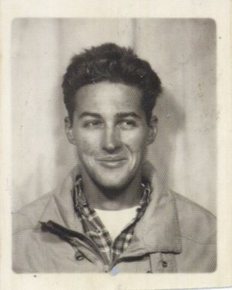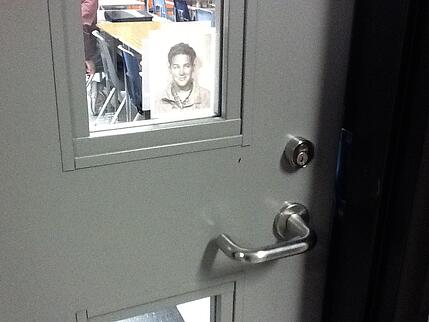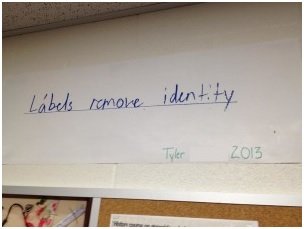I started journaling when I was a boy canoeing the waters surrounding my family cottage in Muskoka. My journals were filled with maps of all the places I “discov
ered” during my summers up north. As the years went by and I entered high school, the journal’s pages of maps became dotted with anecdotes from my life beyond that lake. It was around this time that I found a copy of The Journey is the Destination: The Journals of Dan Eldon at a local bookstore.
 Dan was a photographer that was tragically killed in 1993 while on assignment in Somalia, leaving behind sixteen black bound journals filled with photographs, stories and other bits and pieces from his extraordinary life. It was a form of expression that I could relate to, and for that reason Dan has always been a part of my life.
Dan was a photographer that was tragically killed in 1993 while on assignment in Somalia, leaving behind sixteen black bound journals filled with photographs, stories and other bits and pieces from his extraordinary life. It was a form of expression that I could relate to, and for that reason Dan has always been a part of my life.
A picture of Dan greets my students when they come into my classroom – his message, which is kept alive by the Creative Visions Foundation established by Kathy Eldon and Amy Turtletaub Eldon to continue his legacy of using media and the arts to create meaningful change in the world around him, is easily integrated into any subject or lesson (in teaching, the journey truly is the destination).

Throughout my career journaling has been an important vehicle for expression – particularly when dealing with such difficult subjects as genocide and the human capacity for evil (I immediately think of Ontario's Genocide and Crimes Against Humanity Course, supported with Facing History training and resources). It is important to give students an outlet – and following Dan’s cue, the less structure the better. An important part of giving students the opportunity to journal is to allow them the freedom to do it on their terms. Found Poetry (an exercise I learned about through Facing History), written entries, photographs, graffiti, music, and other forms of expression must all be on the table. There should also be (within reason) no censoring of the student’s work. While a general guideline is important (our first entry in the Genocide Course is usually “Your first experience, either witnessing or feeling hate” or “Your first experience witnessing a label”) how students choose to approach it should be up to them.
Always take the opportunity to celebrate expression.
It was during my last Genocide class (2013-14) that I read a profound statement in the journal of Tyler. When asked to explore his first experience of a label, Tyler wrote a lengthy response that ended with a simple conclusion: Labels remove identity. Tyler was exploring the fact that if we spend all our time categorizing people into groups, we deny their true individual identities. In effect, the label becomes a white noise that drowns out the person. I was struck by the wisdom in Tyler’s statement.
I immediately photocopied Tyler’s entry, isolating and enlarging his words to create a poster for my classroom.  That line, in Tyler’s own handwriting, has triggered all kinds of wonderful discussions, becoming a teaching-tool whenever a class (in any subject) addresses issues of labeling or hatred in society.
That line, in Tyler’s own handwriting, has triggered all kinds of wonderful discussions, becoming a teaching-tool whenever a class (in any subject) addresses issues of labeling or hatred in society.
Other examples of the power of journaling – students were asked to deal with their identity, including labels that had been placed on them - can be found here.
In what other courses have you used journaling?
What are some pieces of wisdom that you have learned from students in your own career?
What are other ways you can allow students to express their thoughts around difficult subject matter?

